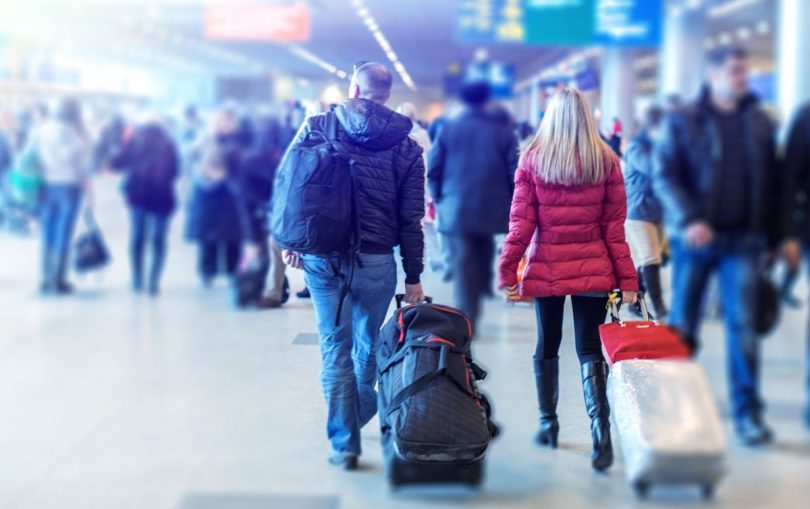[ad_1]
A problem with the Federal Aviation Administration’s Notice to Air Missions (NOTAM) system caused the agency to order flights across the United States to be grounded for several hours Wednesday morning, leading to a ripple effect of nearly 9,000 delays and more than 1,200 cancellations by mid-afternoon, according to FlightAware.
Although temporary, Wednesday’s flight stoppage will likely cause aftershocks felt throughout the travel and hospitality sectors. And it calls attention to the need for updated technology as well as stronger passenger rights, industry experts say. The latest air travel crisis comes on the heels of Southwest Airlines’ holiday travel ordeal that left many passengers left stranded or without luggage.
Philip Ballard, executive at hotel deals booking service HotelPlanner, predicts the stoppage “will discourage some people from flying right now, especially after last month’s Southwest Airlines incident.”
It will also impact hotels, which rely on a “reliable and predictable aviation industry” to maintain high occupancy rates and RevPAR (revenue per available room), according to Ballard.
“Nationwide aviation shutdowns, however temporary, always affect the hospitality industry’s bottom line because the industries are mutually dependent on each other,” he says. “Hotel managers nationwide are likely being forced to make a lot of adjustments today to keep up with all the reservation modifications and cancellations, as well as new bookings for stranded travelers.”
Subscribe to our newsletter below
Ballard recommends that passengers whose flights have been canceled or delayed rebook online with their smartphone or by calling the airline’s international number for faster service.
The cause of the NOTAM failure was unknown at the time of this report, but President Biden has issued an investigation, and U.S. Transportation Secretary Pete Buttigieg says while there is no evidence of a cyberattack, it cannot be ruled out until they gather more information.
Eric Napoli, vice president of legal strategy at air passenger rights company AirHelp, says that “in all cases for issues beyond an airline’s control, like today’s FAA outage, airlines are not required to compensate passengers” whose flights are delayed or canceled. In the U.S., compensation is only required if passengers are denied boarding from an oversold flight, Napoli adds.
“The Department of Transportation is pushing for stronger passenger rights,” he says. “The chaotic summer travel season and the recent experience of passengers impacted by the Southwest flight disruptions over the holidays exemplify why better protections are needed in the U.S.”
Legacy systems that airline teams are using often exacerbate delays, says Anand Krishnan, CEO of travel technology company IBS Software. Krishnan says the travel industry is on the verge of a digital revolution, but many airlines still have a ways to go in their digital transformation.
“The inconvenience to hundreds of thousands of passengers grounded across the country today is nothing compared to the millions who will be disrupted by the delays and rescheduling to come,” Krishnan says.
“Lots of domestic airlines still use clunky legacy technology to manage operations, which will turn what should just be a straightforward logistical challenge into a nightmare. Until airlines take steps to strengthen their tech foundations, disruptions pose a serious threat to customer experience and threaten revenue and reputation.”
[ad_2]
Source link








